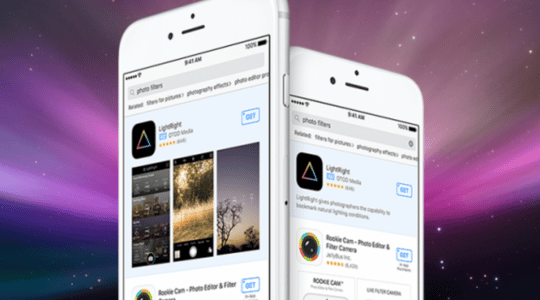
Editor’s note: This week, industry outlets have been flooded with post-Affiliate Summit West 2020 recaps and opinion pieces, including our own. In this article, the author revisits the main question at this year’s event, eventually sharing the view we have here at TUNE — no matter what we call our industry, let’s work together to make it the best that it can be.
This article was originally published on performancein.com by Mustafa Mirreh, who is a senior journalist at PerformanceIN.
PerformanceIN senior digital journalist Mustafa Mirreh examines why the affiliate marketing vs partner marketing debate has dragged on for long enough and whether it’s time to be focusing on more important matters in the industry.
Alas, we’re just over a month into 2020 and despite the prospect of new ideas, innovation and brands building stronger relationships, growing their programs and increasing incremental revenue, we’re still discussing the same old story — affiliate marketing versus partner marketing.
So what’s the fuss all about? Why is there a debate to begin with and why are we still going on about it?
Overview
There’s no denying the fact that the affiliate marketing industry is adapting as new players, technologies, and products come into play. Gone are the days of a single merchant promoting products by recruiting as many affiliates as possible to earn a commission on a cost-per-action basis, or the days where coupons, voucher, and loyalty were the only affiliates around. Now, we live in a digital and data-driven era where programs are much more trackable to provide better insights into the consumer journey, allowing advertisers to better recruit, engage, and optimize with affiliates. Furthermore, technology has paved the way for more innovative set ups to influence both the consumer journey and give brands more options. Tech publishers such as RevLifter, Increasingly, and even browser extension tools such as Honey and Pouch have cranked up the gears to incentivize consumer purchasing behaviors using AI and other technologies to expand the attribution model. In addition, influencers, who create valuable content, have now entered the funnel, contributing to further partnerships and conversions.
Bottom line, there are more options out there than ever expected and as an industry, we should be helping brands to best utilize the diverse range of groups that are available and the programs and tools at their disposal to achieve successful incremental revenue. However, instead, it seems that we’ve entered into a big tug of war of deciding what to call the industry’s progression (affiliate marketing or partner marketing), which surely hasn’t fundamentally changed at its core?
“There’s definitely a distinction in my mind. Affiliates are important and valuable and help lots of businesses achieve their goals — but they are only one type of partner. Software integrations, B2B partnerships, influencers, podcasts — these are all types of partner as well,” said Owen Hancock, marketing director, EMEA at Impact.
“If you’re looking for something concrete to hang your hat on though, I think the biggest difference is that partnerships are individual unique relationships that are considered and thought through by both sides. Whereas affiliates can tag on new advertisers to their existing business model (e.g. put a new merchant page on a cashback or voucher site, add another company to your automated links on Skimlinks, put another competitor on price comparison listings, etc.),” he continued.
Helen Southgate, managing director at Acceleration Partners explained that while partner marketing is a broad and encompassing term, affiliate marketing remains a component of it.
“The differentiator is that partnerships work on the affiliate marketing model, where the partner receives a commission for the sales they generate. What if we could expand the current affiliate model to include a broader range of partners outside of traditional affiliates?” she said.
Affiliate vs Partner
A recent panel discussion at an affiliate marketing conference in Las Vegas brought the affiliates versus partner debate to center stage, featuring Awin CEO Mark Walters, Impact CEO David Yovanno, Rakuten Marketing managing director US Julie Van Ullen, PartnerCentric CEO Stephanie Harris, TUNE VP of global marketing Brian Marcus, and Acceleration Partner founder and CEO Robert Glazer.
In summary, there’s no shy of opinion from these parties as all have expressed their views on the matter, but hearing from those who attended the session, it appeared to be a very heated debate between networks and SaaS platforms.
While I can’t vouch for what was discussed as I wasn’t present at the event, I’ve done some research and read some summary posts from the panelists themselves and for me, as a whole, I 100% agree that the affiliate model has definitely evolved and adapting to new partners and technologies that are more trackable, transparent, and scalable. However, to completely rebrand this as partner marketing and calling affiliate marketing outdated or “limited” is where this debate goes sour. Yes, Hancock mentioned above there is a distinction between affiliates and partner, but surely they’re all affiliate relationships regardless and can work on an affiliate model as Helen suggested?
At the end of the day, affiliate marketing is and still remains a payment model with a platform behind it to organize all the components — regardless of who is driving the traffic/conversion. It just seems to me that it’s like one big PR exercise that everyone is jumping the bandwagon when it’s fundamentally the same. Impact CEO David Yovanno, who was on the panel, made some valid points into the new partnership types available and vice versa but overall, it felt like a big statement to say that partnerships are the future.
So is this all rather semantic based on what’s been discussed so far?
“Personally, I think there’s a move from the affiliate networks to try to dismiss the idea that affiliates and partners are different because they can’t see how big the partnership opportunity actually is and they know all their money is tied up in a handful of big affiliates,” commented Hancock.
“For me, it’s fairly straightforward: it’s academic what we call it, it does become an issue when certain quarters of the industry try to distinguish it as a USP. That’s a completely false flag, irresponsible marketing fluff, designed to somehow show established businesses are slow, analogue, stuck in a past way of thinking,” said Kevin Edwards, global strategy director at Awin.
Another part of this debate is the talk of pushing away “traditional affiliates” like coupon, voucher, and loyalty, and other marketing channels such as paid search or even video advertising. To say that they’re limited and even non-relevant is complete nonsense. Look at browser extension tool Honey, which got acquired by PayPal for $4 billion. That speaks volumes in its own right. We recently spoke with Deliveroo on how they used automation and technology to enhance paid search by 166% year-on-year. There’s even value in video advertising as a performance channel, not to mention this week’s report from Alphabet, which stated that YouTube ad revenues reached $15 billion last year.
“The best affiliate relationships have always been partnerships. The strongest merchant and publisher relationships always see them regard each other as partners rather than a purely transactional relationship. Trying to reinvent affiliate marketing as partner marketing is a reaction to those who still view the industry in a dim light,” said Pete James, head of affiliates at vouchercloud.
“Instead of trying to reinvent our industry with a different name, we should challenge outdated perceptions, prove we’re worth with unarguable data, and drive the industry forward through innovation,” James added.
Time to Move On and Work Together as an Industry
I also had a chat with Mark Kuhillow, founder of marketing attribution platform R.O.EYE and we both concluded that this debate needs to move on. Instead, we should be focusing on the advertisers and their needs to achieve incremental value. The key thing for brands now is tracking their program performance as efficiently and consistently as possible. Whichever affiliates, partners, or metrics they use to achieve this is up to them but it’s down to the likes of Awin, Impact, Partnerize, Rakuten Marketing and TUNE with the products and technologies they have available to educate them on working with the right channels to facilitate compelling relationships while tracking performance at a measurable scale.
“The technology is there to track, we have the people skills to match brands to partners, and we know how to leverage the affiliate marketing payment model to benefit both parties mutually. Having a broader range of partners can only be a benefit to any brand and affiliate program,” added Southgate.
“As an industry, we should stop worrying about semantics and focus on expanding affiliate marketing into the broader partner marketing world.”
For me, Brian Marcus of TUNE delivered a more balanced view to showcase how we should be finding ways as an industry to work together on the developments of the channel.
“More openness will mean setting aside our exclusive relationships with marketers to connect them to any high-quality scale that drives incremental volume, wherever that volume lives. This means more interoperability across networks, so marketers can tap into new traffic sources without disrupting their daily lives. It also means removing friction in working with agencies, so that advertisers can leverage their expertise and depth of relationships. Being inclusive means operating seamlessly, despite our unique differences,” Marcus summarized in a blog post.
It’s 2020, so let’s scrap this pointless affiliate marketing versus partner marketing debate and together, as an industry, focus on the more important issues and challenges to support the channel head-on.
Mustafa Mirreh is a senior journalist at PerformanceIN. He reports on the latest day-to-day news and updates from the world of performance marketing, while also doing social media promotion, live reporting of events, article features and interviewing key industry players. Read more from him here.
Author
Becky is the Senior Content Marketing Manager at TUNE. Before TUNE, she handled content strategy and marketing communications at several tech startups in the Bay Area. Becky received her bachelor's degree in English from Wake Forest University. After a decade in San Francisco and Seattle, she has returned home to Charleston, SC, where you can find her strolling through Hampton Park with her pup and enjoying the simple things in life.




Leave a Reply
You must be logged in to post a comment.